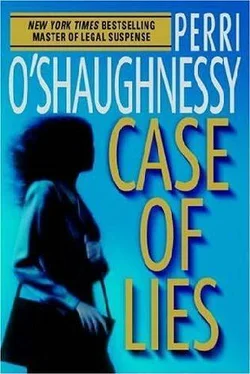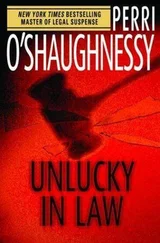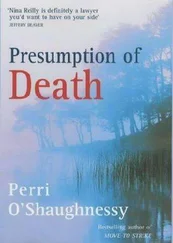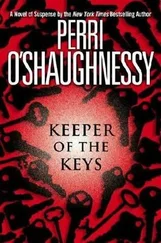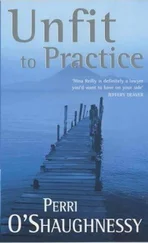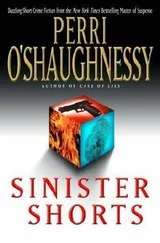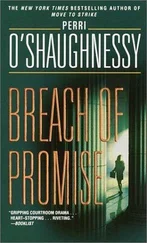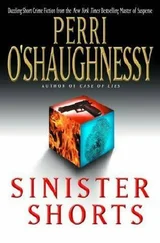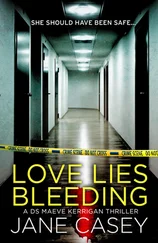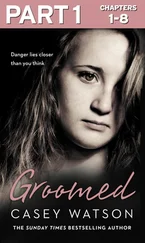Nina put her fingers to her temple, closed her eyes. “You saw him in Sweden a few months ago.”
“I need to go again.”
“You miss him so much?”
“Well, sure, I miss him, but the thing is, I talked to him a couple of weeks ago. He lost his job with the Stockholm Opera Company and he’s back in Germany. He’s having trouble with his hands.”
Kurt Scott, Bob’s father, was a concert pianist who had eked out a living touring Europe for most of Bob’s life. He hadn’t known about Bob’s existence until a few years before, because Nina hadn’t wanted him to know. He had left her, waiting for him, with no word, soon after she learned she was pregnant. That day had become a turning point in her life, and she had polished the memory, along with the grief and rage over being abandoned, for so many years, that even when she learned years later that Kurt had left her to save her life, she had not been able to change her feelings from that day. The memory was encysted in her, permanently, it seemed.
But Bob had no such memories. Since discovering each other, he and Kurt had seen each other several times and developed a close bond that didn’t include her.
Nine felt a now-familiar tugging at her heart. She didn’t want Bob to leave her. It wasn’t Kurt’s fault that his life was in Europe or Bob’s fault that he wanted to see him again, but she didn’t want Bob to go, even for a few weeks. Her life, her routines, were built around Bob. She knew she feared that one day he might go and live with Kurt. Then what would she do? He was her companion, her fellow traveler.
All right, tell the truth. She didn’t want to stay alone in the house, not right now.
She had barely seen Kurt in the years since Bob’s birth. She trusted him with Bob, knew he cared for Bob and had been unfairly deprived of the chance to father him over the years, knew he needed to make up time. But she didn’t see why he had to take Bob away right now, at the start of a new school year, when she had so many plans for them. Okay, she hadn’t made many plans. But she would think some up, right now.
“Now isn’t a good time,” she said.
“I’m not asking you for a ticket or anything, Mom. I’ll pay my own way.”
“I’m thinking we should spend some time poking around the Gold Country on weekends,” Nina said. “Take a car trip up to Idaho to ski. Maybe Uncle Matt and Aunt Andrea and Troy and Brianna would come with us.”
“Troy and Brianna are in school. Like me. Aunt Andrea’s busy with the new baby and Uncle Matt works twenty-four hours a day, seven days a week, winter and summer.”
This was more or less true. Troy, her nephew, a few years younger than Bob, had been diagnosed with a learning disability and couldn’t miss school, and her brother Matt’s tow-truck business had started up the day parasailing got too cold on the lake. There would be no big happy family trip to Idaho.
Bob ran his hand through his dark hair. Like Kurt’s, his eyes were a speckled green.
“Did your dad ask you to come?”
“No. But he’d like it.”
Nina wanted to say, But I won’t like it if you leave, but Bob didn’t need any more burdens on him right now. “What’s wrong with his hands?”
“I don’t know.”
“Let’s talk more about it tomorrow night,” she said. “It’s been a hard day. I’ll give your dad a call.”
“Okay. Want to go to Wild Waters in Sparks tomorrow after I finish? They close next week.”
“Sorry, honey. I have a meeting in Placerville.”
“On Sunday afternoon?”
“Drive down with me.”
“No, thanks. I’d rather hang around here with Taylor.”
“Okay. Did you set the alarm?”
“An’ checked the windows good. Are you scared, Mom? I don’t see how he could know where we live, and the police are watching an’ I’m watching. He got what he wanted. He made us afraid. That’s the last of him.”
“I guess so. I’ll be fine. Love you. G’night.”
“G’night.”
She turned off the lamp and shut her eyes, seeing once again Hitchcock’s frantic eyes as he lunged against the window of the Bronco.
FOUR-ELEVEN IN THE AFTERNOON. ELLIOTT was just waking up. He crunched through two bowls of crispy cereal, standing at the kitchen counter, back safe at home on Vashon Island. He had gotten in very late from Tahoe and hadn’t been able to sleep until morning because he couldn’t stop thinking about the man in the ski mask.
In the dreary daylight, which highlighted the broken tiles near the toaster, he considered that he was now more than a thousand miles from Tahoe, an eighteen-hour drive. He was safe. Relatively safe.
He went through a box a day sometimes. Boxed cereal might look like pure junk, but actually, the vitamins added later, plus the fact that the cereal had once, a very long time ago, grown in a field and been alive, resulted in a substance that tasted good and also contained all minimum daily requirements. It took almost no time to pour cereal and milk into a bowl. All in all, he wouldn’t eat anything else, except that Pop had surprised them both and turned into a master chef after his mother’s death.
Through the door into the living room Elliott could see the back of his father’s head, the silver hair shaking when he disagreed with the umpire or got excited about a play. The orange-leafed trees outside their picture window, and the fact that his college team was winning, made Pop forget about the MS. Sometimes he did get depressed, though. Then he’d say things like, “El, you’ll be on your own someday.”
But most of the time Pop seemed to feel fine. He ran the house from his wheelchair, he and Gloria the sexy housekeeper.
Someday Pop would be in trouble. Elliott was saving up for that, to make sure he’d have the best care.
Four-thirteen. “Get ’im!” Pop said. “Did you see that, El?”
They still lived in the brick house he’d been born in. For many years, Pop had ferried back and forth from Seattle, where he was a professor of linguistics at the university. He was also a Sanskrit scholar. Even now, those two words sent a shiver of excitement through Elliott. His father knew things nobody else knew, about ancient magical words.
Pop had seemed like the smartest man in the world when Elliott was a kid. Most nights after supper, between six and seven, they’d go into the den and shut the door. His father would pull down a volume of the Encyclopaedia Britannica from the shelf, and they would read an article together. They worked in alphabetical order, so one night it would be electromagnetism, and the next, elephants.
Then Elliott would finish his homework, which hardly took any time, because he was a bright one, so Pop said. He told Elliott about Sanskrit. Linguistics wasn’t about languages, it was about logic. Pop showed him how to diagram Sanskrit grammar so the little x ’s and y ’s added up to a sentence, and Elliott enjoyed this a lot, even though the words themselves flitted from his mind.
Somehow his interest turned from the language to the x ’s and the y ’s. Subject plus verb plus direct object equals a sentence. In English, anyway. English moved like a number line, marching to the right. But there were other languages that put the direct object first, or even the verb. X stayed the subject, y still described the verb. Math described language; wow!
He had first discovered numbers when he was three or four. Someone gave him a set of magnetic numbers and letters that his mother put on the refrigerator for him, and he threw away the letters and kept the numbers, because he couldn’t read, but he could add.
He was sure numbers were real. One was the Stick, a skinny black stick that got left behind all the time. Two was the Blue Policeman; Zero was the Crystal Ball, white and glowing like a ghost. Three was the Bully, red and angry. It turned all the numbers it could divide into a reddish color.
Читать дальше
